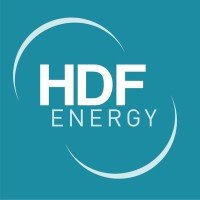Rotterdam can supply Europe with 4.6M tonnes of hydrogen by 2030
Using sustainable hydrogen substantially contributes to the European objectives of reducing climate change and increasing Europe’s energy independence.

The port of Rotterdam and the cluster of companies can supply Northwestern Europe with 4.6 million tonnes of hydrogen annually by 2030, which is considerably more than expected.
The consumption of 4.6 million tonnes of hydrogen yields 46 million tonnes of CO2 reduction, and it increases Europe’s energy independence. This hydrogen amount is the total the Port of Rotterdam Authority has come up with on the basis of specific projects and realistic plans, which companies and exporting countries are now working on.
On behalf of some 70 companies and exporting countries, the Port of Rotterdam Authority has made European commissioner Frans Timmermans this offer of getting off to a flying start with the hydrogen economy. The plans and projects represent a concrete implementation of the heightened European ambition: within the context of REPowerEU, a fourfold increase is envisioned in the production and import of hydrogen compared to the ‘Fit for 55’ package (from 5.6Mt to 20Mt). This hydrogen could then be used for ensuring the sustainability of society, in particular as fuel and feedstock for transport and industry.
According to the 70 parties that endorse the offer, two preconditions are crucial to get the hydrogen economy underway. The first is hydrogen certification: green hydrogen imported from outside Europe has to be certified as green here. The second precondition is closing the financial gap between the use of renewable and low carbon hydrogen and its derivatives compared to their current CO2-emitting alternatives. This is because as long as energy made from fossil fuels is cheaper than sustainably produced energy, the latter will not get the momentum required for achieving the European objectives.
Hydrogen is an alternative for oil and natural gas as energy and as raw material. Many companies are working on projects to produce hydrogen in Northwestern Europe with green power or to do this at locations with more sunshine, wind and space. Countries all over the world are preparing for these new energy flows. Hydrogen made in Latin America or Australia for instance, can be shipped to Rotterdam efficiently and on a large scale, processed here, and then be transported to the hinterland.
The parties are:
- Abu Dhabi Ports
- Administración de los Puertos de Sines e del Algarve
- AES Brasil
- Air Liquide
- Air Products
- Aker Clean Hydrogen
- Algeciras Port
- Aramco
- BP
- CEPSA
- Chariot
- Chemelot
- Covestro
- Duisport
- ON
- Empresas Gasco
- Eneco
- Engie
- Essent
- Fisterra Energy
- Fjarðabyggð Municipality
- Gasunie
- Global Energy Storage (GES)
- H2 Energy
- HES
- Horisont Energi
- HTS group (RH2INE)
- Hüttenwerke Krupp
- Mannesmann (HKM)
- HyCC
- Hychico
- Hynewgen
- Koole Terminals
- Linde Gas
- Maasvlakte Olie Terminal (MOT)
- Minenergia la Nueva
- Energia
- Ministerio de Industria, Energia y Mineria
- nceda
- Net Zero Technology Centre
- Nobian
- Northland Power
- OCI
- Pecém Port
- Port de Baie-Comeau
- Port of A Coruña
- Port of Cromarty Firth
- Port Saint John
- ProChile
- Proton Ventures
- PTC (RH2INE)
- Republic of Namibia
- RH2INE
- Rotterdam The Hague Airport
- Rotterdam the Hague Innovation Airport
- Rotterdam-Rijn Pijpleiding
- RWE
- Sasol
- Shell
- Source3 Energy
- South Australian Department For Energy and Mining
- STEAG GmbH
- Tarafert
- The Austria Energy Group
- Theo Pouw (RH2INE)
- Thyssenkrupp
- Trafigura
- Uniper
- Vopak
- VTTI
- Westenergie
- City of Rotterdam
- Provincie Zuid-Holland
- Port of Rotterdam
